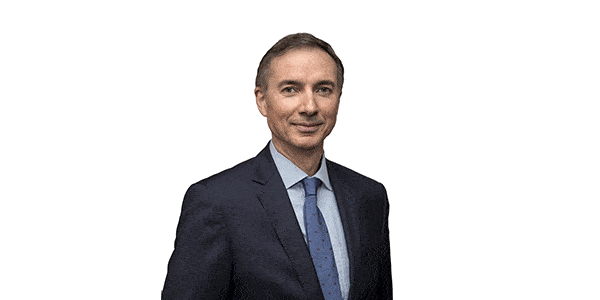Pictured: Barry Dempsey, CEO, Chartered Accountants Ireland
The accelerating pace of technological change has kicked off a revolution in financial services, and digital disruption is transforming the business world. What is required from the finance profession in order to adapt? Barry Dempsey, CEO, Chartered Accountants Ireland takes a look
Would you be able to tell if this article was written by a robot? It wasn’t, but if it were, there is a good chance that you might not notice.
Artificial Intelligence (AI) has been around since the 1950s. It has been functional since the 1980s. It’s bursting into our world now because the data processing power now exists for it to make a real difference to how we live and work.
The accelerating pace of technological change has kicked off a revolution in financial services. Digital disruption is transforming the business world. Some top executives in the US have even talked about the potential of a ‘mass extinction event’ for large established banks which fail to adapt.
The global research firm Gartner has estimated that within 12 years’ time, 80% of financial firms will either go out of business or be rendered irrelevant by new competition, changing customer behaviour and advancements in technology.
The role of the finance professional
The pace of change is astonishing but it’s part of the role of the accountant and finance professional to anticipate those changes ahead, and to ensure that their client or organisation is ready not just to survive, but to thrive.
At times of uncertainty, it’s vital that business can have confidence in their financial advisers and that those advisers have the skills, experience and training to provide impartial, realistic advice.
Professionals working in accountancy and finance have always been more than simply ‘bean-counters’. Chartered Accountants have always been leaders within businesses, people with the training and knowledge to know how a business really works. But now the role is more varied and is changing faster than ever before.
Training and education
Chartered Accountants Ireland is the largest professional body of accountants on the island of Ireland. We have recently announced a new partnership with leading enterprise Robotic Process Automation (RPA) software firm UiPath, making us the first professional accountancy body in the world to begin formal training and official examination of students in this area.
At times of uncertainty, it’s vital that business can have confidence in their financial advisers and that those advisers have the skills, experience and training to provide impartial, realistic advice.
As part of our augmented education programme, more than 1,300 trainee Chartered Accountants per year are now starting to study and develop practical skills in AI, RPA, Blockchain and Cryptocurrencies.
Together, our member firms are the largest employer of graduates in Ireland. We currently train over 6,500 students who receive the best possible business education. We want to make sure that there are professional accountants with the integrity, skill, expertise and judgement to make a real difference to the economy, and to society.
Taking the opportunity
Stephen Bird, Global CEO of Citi is quoted as saying that the changes in the finance sector are “an epochal shift, more dramatic than electricity or the automobile”.
Just like those developments, there will be opportunities as well as threats for those that are well-prepared and well-advised. Accountancy and finance professionals need to take a leading role in how this change is managed.
When faced with uncertainty, regulated accountants can draw on a deep pool of experience and rigorous training. Businesses need to be confident that their adviser will give advice that they can count on. When risk needs to be managed, Chartered Accountants provide strategic guidance and assurance which, in turn, give a real business advantage.
Far from limiting the future for accountancy professionals, these futuristic applications and methods will create new opportunities for trained accountants. Financially literate leaders will always be called upon to make the right decisions.
It’s just that accountants and those that train them need to make sure that they are equipped to be leaders in a modern marketplace if they are to play their part in growing the financial services sector in Ireland.






